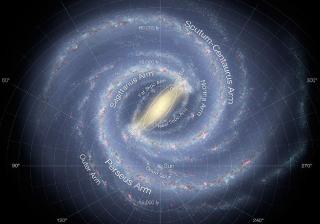Bibcode
López-Corredoira, M.
Bibliographical reference
International Journal of Astronomy and Astrophysics, Vol. 1, No. 2, p. 73-82
Advertised on:
6
2011
Citations
11
Refereed citations
9
Description
Quasars (Quasi Stellar Objects, abbreviated as QSOs) are still nowadays,
close to half a century after their discovery, objects which are not
completel y understood. In this brief review a description of the
pending problems, inconsistencies and caveats in the QSO's research is
presented. The standard paradigm model based on the existence of very
massive black holes that are responsible for the QSO's huge
luminosities, resulting from to their cosmological redshifts, leaves
many facts without explanation. There are several observations which
lack a clear explanation, for instance: the absence of bright QSOs at
low redshifts, a mysterious evolution not properly understood; the
inconsistencies of the absorption lines, such as the different structure
of the clouds along the QSO's line of sight and their tangential
directions; the spatial correlation between QSOs and galaxies; and many
others.
Related projects

Morphology and dynamics of the Milky Way
This project consists of two parts, each differentiated but both complementary: morphology and dynamics. Detailed study of the morphology of the Milky Way pretends to provide a data base for the stellar distribution in the most remote and heavily obscured regions of our Galaxy, through the development of semiempirical models based on the
Martín
López Corredoira